
Bruce Bower has written about the behavioral sciences since 1984. He often writes about psychology, anthropology, archaeology and mental health issues. Bruce has a master's degree in psychology from Pepperdine University and a master's degree in journalism from the University of Missouri. Following an internship at Science News in 1981, he worked as a reporter at Psychiatric News, a publication of the American Psychiatric Association, until joining Science News as a staff writer. In 1996, the American Psychological Association appointed Bruce a Science Writer Fellow, with a grant to visit psychological scientists of his own choosing. Early stints as an aide in a day school for children and teenagers with severe psychological problems and as a counselor in a drug diversion center provided Bruce with a surprisingly good background for a career in science journalism.

Trustworthy journalism comes at a price.
Scientists and journalists share a core belief in questioning, observing and verifying to reach the truth. Science News reports on crucial research and discovery across science disciplines. We need your financial support to make it happen – every contribution makes a difference.
All Stories by Bruce Bower
-
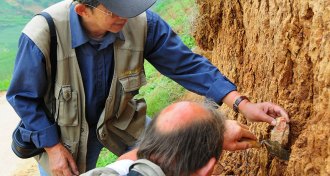 Archaeology
ArchaeologyStone tools put early hominids in China 2.1 million years ago
Newly discovered stone tools in China suggest hominids left Africa 250,000 years earlier than we thought.
-
 Genetics
GeneticsNorth America’s earliest dogs came from Siberia
North America’s first dogs have few descendants alive today, a study of ancient DNA suggests.
-
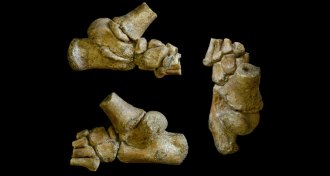 Anthropology
AnthropologyFoot fossil pegs hominid kids as upright walkers 3.3 million years ago
A foot from an ancient hominid child suggests that Lucy’s species, Australopithecus afarensis, walked early in life.
-
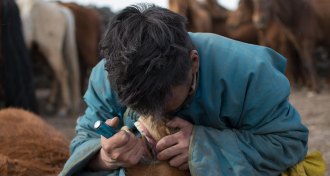 Archaeology
ArchaeologyMongolians practiced horse dentistry as early as 3,200 years ago
Horse dentistry got an early start among Bronze Age Mongolian herders.
-
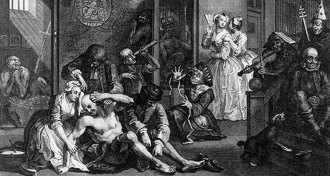 Genetics
GeneticsThe study of human heredity got its start in insane asylums
‘Genetics in the Madhouse’ reveals how human heredity research began as a statistical science in 19th century insane asylums.
-
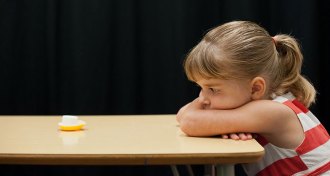 Psychology
PsychologyKids today are waiting longer than ever in the classic marshmallow test
Preschoolers wait longer for extra treats than they used to. What does it mean?
-
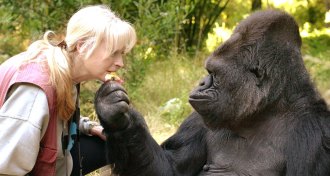 Anthropology
AnthropologyKoko the gorilla is gone, but she left a legacy
An ape that touched millions imparted some hard lessons about primate research.
-
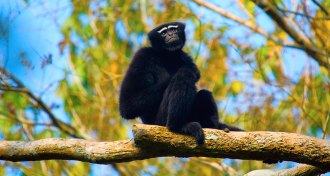 Anthropology
AnthropologyA 2,200-year-old Chinese tomb held a new gibbon species, now extinct
Researchers have discovered a new gibbon species in an ancient royal Chinese tomb. It's already extinct.
-
 Psychology
PsychologyPhone apps are helping scientists track suicidal thoughts in real time
Researchers are using smartphones to tap into the ups and downs of suicidal thinking that occur over hours and days, hoping to help prevent suicides.
-
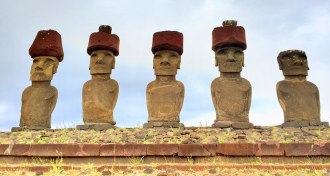 Archaeology
ArchaeologyThis theory suggests few workers were needed to cap Easter Island statues
A small workforce may have put huge stones on the heads of Easter Island statues.
-
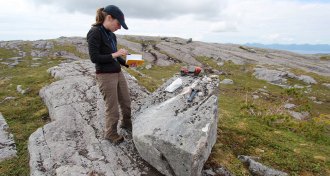 Climate
ClimateThe first Americans could have taken a coastal route into the New World
Alaskan glaciers retreated in time for ancient coastal entries of the first Americans.
-
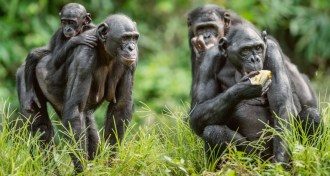 Animals
AnimalsPregnant bonobos get a little delivery help from their friends
As in humans, female bonobos become helpers for mothers giving birth, data from captive apes suggest.